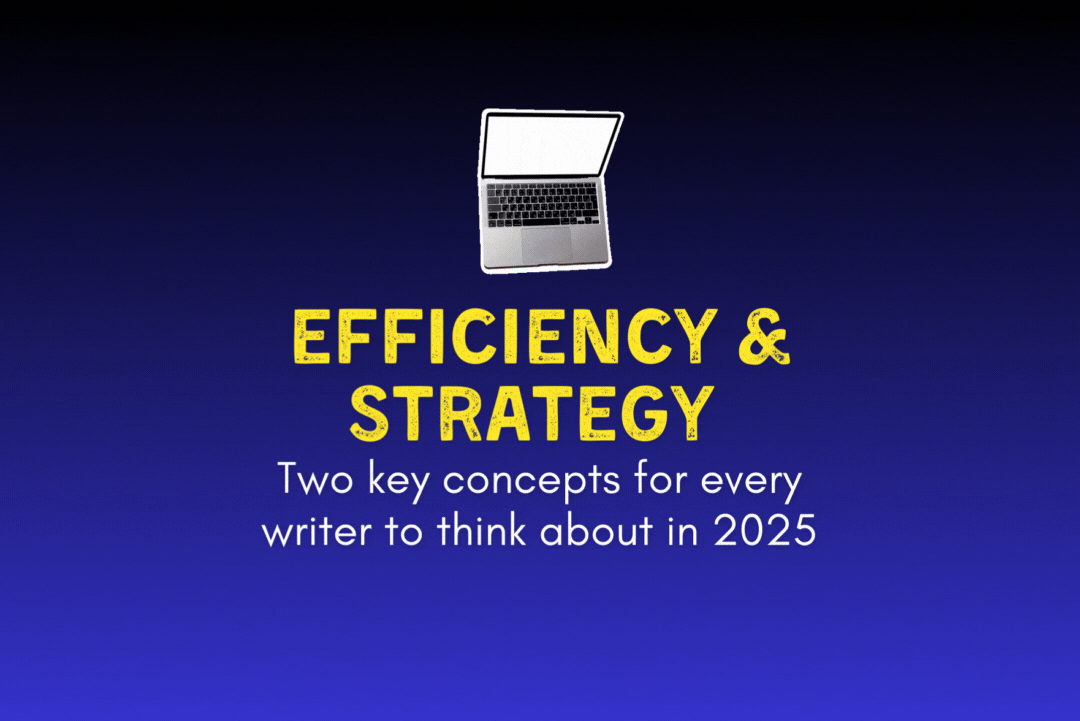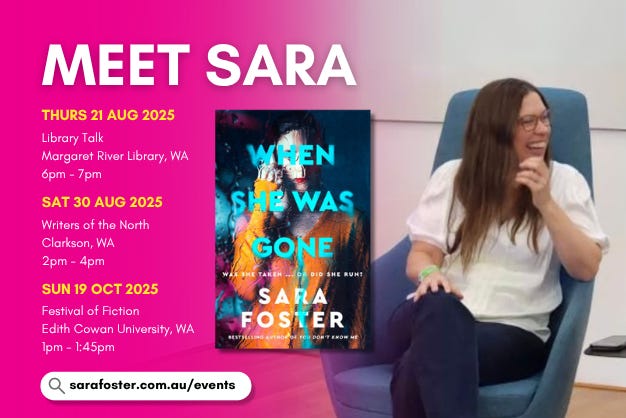Efficiency and Strategy: two key concepts for every writer to think about in 2025
Because when times are a-changing we can't afford to get left behind
Hello, my fellow authors,
I’ll try to keep this to the point today, because I’m on my own deadline and I’m still in the messy middle - argh. I’m playing with a book that has a tricky narrative structure at the moment, so it’s taking me longer than I’d like - which isn’t good, because writing is my main source of income at the moment so I can’t afford to be too slow. I used to be able to earn well writing a commercial fiction book every other year, but in the current moment this is more of a challenge. And it’s made me realise that most of the authors that I see thriving right now fall into one of two categories:
The first group have one thing in common and that’s consistency. Whether it’s one or two (!) books a year - or even four books a year (not sure how Freida McFadden is doing that) - the commercial authors finding the most success have worked out how to regularly produce quality work that excites their fans. There’s nothing better than being able to rely on your favourite authors to give you a new story on a regular basis.
Another group of authors take much longer than a year to produce a story and they tend to work slowly and carefully alongside other occupations and activities, to produce their stellar work. Novels like Lessons in Chemistry, Where the Crawdads Sing and The Light Between Oceans have come from this approach, and they are some of my absolute favourites.
Only you can decide which approach you need to take, but I reckon there are a couple of words that should be on our mind regularly if we’re trying to improve our own workflow:
Efficiency
How efficient are you at getting your writing done? What could you do to improve your efficiency? I’ve realised that I waste quite a lot of time with substandard plotting (and character backgrounds) before I find my way through the maze, so at the moment I’m looking at different ways to improve that. Dervla McTiernan kindly suggested I try Plottr recently, and I’m enjoying the layout of that as it aligns well with how I visualise my story structure.
Strategy
Do you have a strategy for writing and publishing books or even for social media? Or do you spend a lot of time reading about other writers’ strategies? There are always things to glean from listening to others, but during the course of my career I’ve found that this is only helpful if you then personalise their advice to fit your strategy. The only way we can truly improve is by figuring out how to be selective about advice and devise our own strategic approach to our work, otherwise the advice begins to swamp us. I’ve been distracted in the past reading about other authors’ winning formulas and trying to copy them in order to hasten my output, but I often find that other methods suck the life out of my stories. So I’m learning how to be more selective in how much advice I read.
How AI fits in here
We now have to weigh all these ideas around the possibilities of AI. And there are two major discussions around AI going on for authors. The first is the copyright steal - which is no better than someone at school coming along and taking your homework out of your bag and handing copies around the class for them all to use instead of doing it themselves. At the moment a lot of Australian authors are speaking out against the Productivity Commission’s report that suggests perhaps we should weaken Copyright laws (?!?!?!) so it looks as though we’ll be fighting hard for copyright laws to remain intact.
However, AI is here to stay, and to strategically use/avoid it we need to know about what we’re using/avoiding. Many prominent writers are pragmatic about this - for example, if you listen to Richard Osman talking about this on his The Rest is Entertainment podcast he often suggests that creative industries need to get on board or we’ll get left behind. But I’m convinced we also need to fight for and champion individual creativity and critical thinking skills as much as we engage with AI. Therefore, I’ll be looking at how the craft and industry continues to interact with AI as an ongoing feature in these articles.
What do you think? This is an ongoing, nuanced discussion my friends. Let’s keep having it, because we can’t let ourselves get scared off by the strongest opinions on either side.
The wrap-up
In many ways, pursuing a creative living has never been easier - or harder. And with so much contradictory information published on how to do it, we can often become overwhelmed by other people’s opinions. Taking an attitude of experimenting with our own processes might be the best way to improve our workflow. Try changing one thing and documenting how that impacts your output. Was it easier or harder to achieve your writing goals? It’s important to be intentional about our processes and continually refine them until we find what works best. And then, we might find it all a little easier when we suddenly decide to tackle a more complex narrative structure for fun (!)
My upcoming events
THURS 21 AUG 2025
Library Talk
Margaret River Library, WA
6pm - 7pm
SAT 30 AUG 2025
Writers of the North
Clarkson, WA
2pm - 4pm
SUN 19 OCT 2025
Festival of Fiction
Edith Cowan University, WA
1pm - 1:45pm
Apologies there was no Story Matters post last Friday - normal service will resume next week!




Plottr sounds interesting. I usually just use a spreadsheet. What are the pros and cons you’ve found with it so far?
Glad to hear that Plottr's helping with the efficiency piece of the puzzle, Sara (I'm the marketing guy). Agree on being selective with how much advice one reads. Information overload and analysis paralysis are real! Mistakes are often the best teachers :)